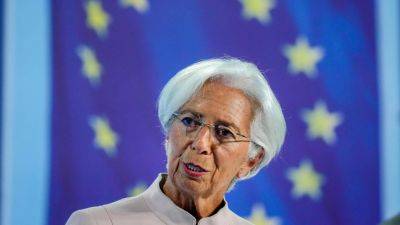Inflation drops sharply in Europe. It offers a glimmer of hope, but higher oil prices loom
Inflation has sharply dropped in Europe
FRANKFURT, Germany — Inflation that has been plaguing Europeans declined sharply in September, strengthening hopes that consumers will eventually get relief from costlier groceries, vacations and haircuts — and that the European Central Bank won’t have to further restrict the economy by raising interest rates from already-record highs.
The annual rate was 4.3% this month, a drop from 5.2% in August. But recently higher oil prices are casting a shadow over prospects for quickly beating inflation down to the central bank’s target of 2%.
Core inflation, which excludes volatile fuel and food prices, fell more than analysts expected — to 4.5% from 5.3%, according to data released Friday by the European Union's statistics agency, Eurostat. The ECB closely watches this figure to assess how inflation is coming down.
The fall in core inflation “reinforces our view that the ECB has finished raising interest rates,” said Jack Allen-Reynolds, deputy chief eurozone economist at Capital Economics. He predicted that the overall inflation rate would tumble to 3.5% by the end of the year.
Energy prices dropped 4.7% in September, while food price inflation remained uncomfortably high at 8.8%.
Readings across the major economies that use the euro currency were a mixed bag. Germany's annual inflation fell to 4.3% in September from 6.4% a month earlier, while Spain's increased to 3.2% from 2.4%.
Economists warn, however, that the large drop in Germany, the 20-country eurozone’s largest economy, was exaggerated by a statistical quirk — the end of a subsidized transportation ticket and a fuel subsidy in September 2022 that had raised consumer prices that month.
The latest inflation figures follow what
Read more on abcnews.go.com



























